Contact UsCONTACT
Please feel free to contact us if you have any questions or concerns.
Inquiry FormStories
STORIES
SERIES EMBARK
![Special Edition] A New Startup from EIR Sets Sail - Working to Develop a World-Changing Quantum Computer](https://www.kyoto-unicap.co.jp/cms/wp-content/uploads/Yaqumo-fig0.jpg)
Kazuhiro Nakashoji, who was an EIR (visiting entrepreneur) at Kyoto University Innovation Capital (Kyoto iCAP) and was aiming to establish the company, established Yaqumo Corporation in April 2025, which is engaged in the development of quantum computers. Because quantum computers can perform complex calculations that are difficult to achieve with conventional computers, there are high expectations from industry and competition for their development is intensifying worldwide. The company has attracted a great deal of attention for its research and development in cooperation with various stakeholders in Japan, with key members from Kyoto University's Yoshiro Takahashi Laboratory and Kenji Omori Laboratory of the Institute for Molecular Science, who are leading the world's research and development in neutral-atom methods. Through a conversation with Ryuhi Kanno, Acceleration Lead of the Kyoto iCAP Investment Department, we asked Mr. Nakashoji to share his perspective on the activities of EIR, what it takes to be a deep tech entrepreneur, and his thoughts on his business.
(Text: Mizuho Takita)
Yaqumo Corporation was established on April 1, 2025. Congratulations on your establishment.
Thank you very much.
Three months have already passed. How is the status of your activities since the establishment of the company?
Considering that a startup must produce some results in five years, we are already one-twentieth of the way through the process. It all happened so fast.
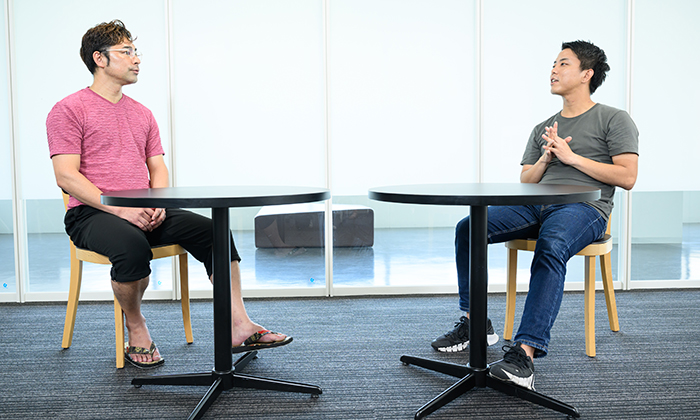
First, please tell us what kind of company Yaqumo is.
We are a company that researches and develops a new type of computer called a quantum computer and creates businesses related to it. Quantum computers can solve complex calculations that are difficult to solve with conventional computers faster, and are expected to be used in a variety of fields, including materials development and finance.
There are companies all over the world that are involved in the development of quantum computers, but what is Yaqumo's position among them?
There are various types of quantum computers, but the one we are developing is a quantum computer that uses the neutral atom method. The feature of our quantum computer is that Professor Yoshiro Takahashi of Kyoto University and Professor Kenji Omori of the Institute for Molecular Science are collaborating in the development of this method.
The quantum computer industry is just starting to emerge, but what are the key technological and business aspects?
First, scalability is important in terms of how many computation elements can be increased. Next, the speed of computation is also a key point. In addition, since a quantum computer makes a calculation error about once every 1,000 times, it is essential that it be equipped with a function to correct this error (error correction). From the overall perspective of scale, speed, and quality, the neutral-atom method we are trying to develop is very attractive.
It is assumed that the social implementation of quantum computers will still take time, but if you were to compare the quantum computer industry to humans, what stage of growth would you say it is?
Yes, I guess it is so not even crawling yet. Even so, it is said that perhaps in the next five years, we will see the results of meaningful calculations that are possible only with quantum computers. Toward that point, various hardware and software companies are currently working on development.
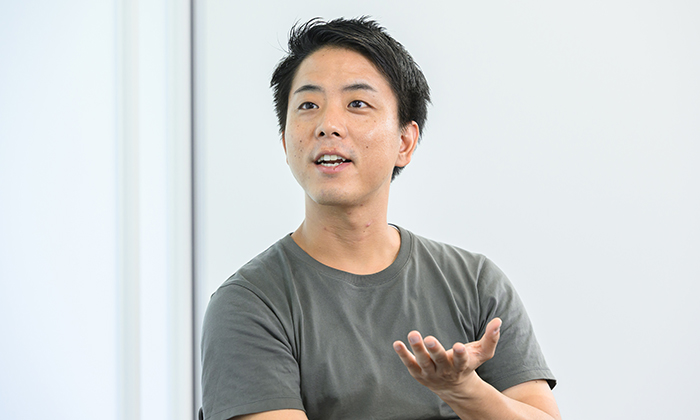
Please tell us first how you came to establish the company and why you applied to EIR-iCAP. In your case, you graduated from graduate school and have been involved in consulting for large companies and creating industries overseas at a strategic consulting firm. When did you start thinking that you would like to do a startup utilizing science and technology?
I have been interested in founding a deep tech startup for about 2 years now. My family is deeply connected to science on my father's side and all of my mother's side are business people. Perhaps I have always had an entrepreneurial bent. In fact, I initially wanted to start a business with an art theme. I like to write novels and draw pictures, so I am inevitably interested in the art field. However, the value of beauty and art suddenly diminishes when projected onto a capitalist society. Novelists and painters are not making much money despite the fact that they are providing the world with wonderful works of art. I was aware of the problem there, and there was a time when I pondered whether I could start a business that could solve it, but it did not work out. Then one early morning in Vietnam, where I was stationed, I was pedaling my bicycle and saw the morning sun shining brightly and thought to myself, "It has to be deep tech." I don't know why, but I thought so.
It came down (laughs).
It's come down to it, hasn't it? It was November 2023 when I learned about the EIR program through an introduction from a person who had started a business with Kyoto iCAP support and contacted you, Mr. Kanno. We spoke online at first, and then you came to Vietnam. I decided to start a business with the support of Kyoto iCAP.
The art story is personally interesting to me. For example, I often hear that even ballerinas who are part of top ballet companies have to work part-time to eat. The capital is not being spent on the aesthetics they are doing and the social value they are providing.
That actually leads me to why I wanted to start a business in deep tech. I believe that scientists should also make more money. I feel that high-value research that has a positive impact on society is not treated properly in a capitalist society. In this respect, I think science in Japan is similar to art. Fundamentally, I seem to have an intrinsic awareness of problems in those areas. This time, the establishment is not art, but deep tech, but I think the background of what I want to do is the same.

You have been active in Kyoto iCAP for one year since joining as an EIR. What was your overall schedule?
I joined in July 2024 and spent the first three months searching for seeds. In the next 3 months, we narrowed down the list to 4 potential start-up projects, in the next 3 months we made decisions on the start-up projects, and in the last 3 months, we completed the start-up preparations and established the company.
What kind of decision-making criteria or intuition did you have in deciding to "see this professor" among the many seeds available?
Basically, I conducted my search and interviews based on the axis of "whether or not the research field is interesting to me" while looking at the list of researchers and their research. On the other hand, looking back, I feel that the perspective of "whether or not I find the professor attractive" had a significant impact on my subsequent consideration of commercialization once I met with him. I had the intuition that "I want to meet him again as a person" or "I want to hear more about science in depth.
It was not only your interest in research, but also the discovery of a connection and compatibility that you found through a series of interviews.
Yes, I think so. For me, I think the first three months were the most important: I conducted about 120 interviews with about 50 professors in three months. I was interested in physics and mathematics, so I focused my sourcing on those areas, but at the same time, it often happened that I talked to one professor who introduced me to another professor. As a result, something like an "original living technology map" was created in my mind. I could see that area A and area B overlapped from certain perspectives, or that this professor and that professor had different research fields but were close in terms of business domain. Unexpected connections between the research and technologies of various professors became apparent. This "rediscovery of my own original world," which I was able to gain only by doing a large number of projects, greatly influenced my later selection of business themes.
The basic method for creating deep-tech startups in Japan is to "match entrepreneurs with researchers and consider commercialization in a short period of time," but listening to your story, I feel that there is more to it than that. It is relatively easy to come up with a certain market hypothesis when looking at a certain technology, but in your case, he has the dynamism of various professors' technologies within himself, and at the same time, he has conversations with various business people and VCs, and as a result of such collective knowledge, he has the idea that "by choosing this business model in this group of people By doing so, we can transform society", he proposes a viable and liveable business.
Yes, that's right. I founded the company this time by integrating two professors and their respective laboratory members. I think this is also because I was able to ask the highly abstract question, "Can one technology be all that is needed to solve a major social problem?" I think this is because I was able to ask myself the highly abstract question, "Is it possible to solve a major social problem with just one technology?
You were also thinking at such an abstract level while dealing with each and every teacher.
To solve a problem, a solution must be considered in the big picture. So the prerequisite of social implementation with only one technology created by one teacher is not an absolute requirement. It is important to think carefully about "whether the structure as a whole is truly capable of positively affecting society," including the connections between technology and technology, between people and people, and social trends.
As I have realized once again since founding the company, deep tech takes a lot of time to commercialize. This is because the initial weapon to be handled is too small for the problem to be solved. However, if you look carefully at your surroundings and work hard, you will find that there are collaborative partners with a variety of technologies who are willing to help you. Gathering such people and working with them is extremely important to speed up the social implementation of deep tech. Therefore, I believe that having a personalized “technology map” is a great advantage for deep tech entrepreneurs.
You are thorough in not only discussing technology and business with your teachers, but also dealing with them head-on as human beings.
Techniques are very important, but we also paid attention to understanding the kind of person and philosophy of the teacher who created the technique. We believe it is important to have the perspective that even if we fail, we can work well together and recover together.
Certainly, since he created the technology over a time frame similar to that of raising a child, it is naturally important for us to deal with him as a proper human being.
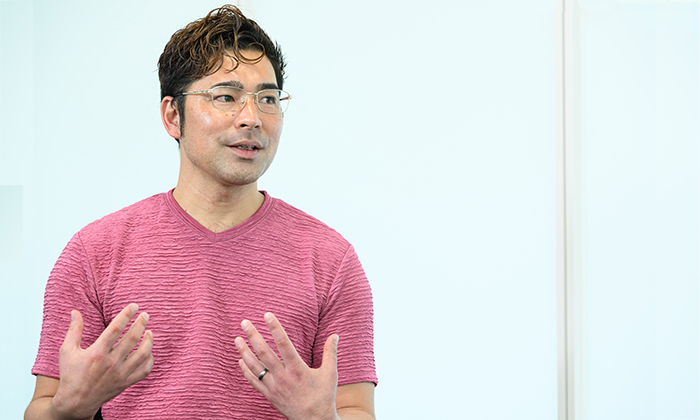
After looking at many seeds, what was your perspective in deciding on the technologies that proceeded to full-fledged consideration?
I did not have clearly defined criteria, but as a result, I screened from the perspective of "can an industry be created on this theme? I was born in Thailand and raised in Malaysia. When I first went to Malaysia in 2000, I remember that the highway from the airport was lined with Sharp and Panasonic billboards, which I found very cool in my childhood. On the other hand, by the time I returned to Japan from Malaysia in 2008, those billboards had been replaced by non-Japanese companies. As a result of my stark realization that Japan's national power was declining, I began to feel that we must create Japanese industries that can compete on a global scale. My main theme was to create industries originating from Japan and export them, so I focused on whether or not the screening process would contribute to that end. Of course, an industry cannot be created by a single deep-tech startup alone, but I think the key point is "whether or not a company founded by oneself can become the core of an industry.
What was the reason you ultimately chose a quantum computer?
Quantum computers are one of the areas that are being supported as a national policy, with extremely high expectations and scale as an industry. I was attracted by the scale of this dream. In taking on such a big challenge, I also thought deeply about whether or not I could "add intrinsic value myself" through this founding of the company. There is no point in doing this unless I feel that the establishment of the company was meaningful only because of myself.
When we were preparing to establish the company, we had two top professors in the field of quantum computers (neutral atom system) in Japan, Dr. Takahashi of Kyoto University and Dr. Omori of the Institute for Molecular Science. Each of them had been conducting fascinating research and development, but in order to compete on the global stage, it would definitely be better to have them work together. We discussed these ideas with each of the professors, and as a result of continued dialogue, we decided to work together on Yaqumo. Perhaps others could have done it, but for me, the fact that we were able to establish Yaqumo by combining the strengths of the two professors at this time makes me feel that we have played a certain role in this project.
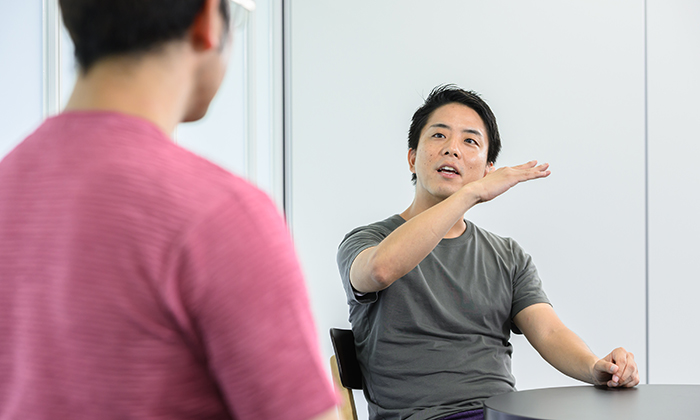
Now that you have founded the company and are going forward as a startup manager, do you have an image of where you would like to be in 20 years, or what you would like to achieve?
As a manager, I have a renewed strong interest in leadership. Leadership, as I understand it now, is "giving hope." I am interested in the meaning of those things that point to how much meaning there is in where we are headed. I say that Yaqumo aspires to become the Toyota of quantum computing. Toyota is an automobile manufacturer, but they do not design and manufacture everything themselves; they have many suppliers, and their leadership is what makes the entire Japanese automobile industry possible. We believe the same is true for us. In the area of quantum computers, we have made it clear that we are going to take the global number one position and develop a domestically produced quantum computer. In this way, we will encourage everyone involved in this industry and create an industry on a national scale. I think that is the kind of leadership we should be playing, and I would like to try that through Yaqumo. That is my passion for Yaqumo. I don't know what the extension of Yaqumo will be.
That is an important concept for a deep-tech entrepreneur with a long time horizon for results. When did you start thinking like that? Did it emerge with the founding of this company, or did you originally have such an idea?
Both would be the answer, but I have been feeling this especially recently. For example, when I started saying "Yaqumo aspires to become the Toyota of quantum computing." my colleagues in the company started saying the same thing externally. I feel that by clearly putting things into words, although they are not words, they form the reality of what the entire organization is aiming for.
If you were to give advice to someone who is about to become an EIR of Kyoto iCAP or someone who is looking to establish a deep tech company, what would it be?
I don't believe that just because you are a deep tech entrepreneur, you necessarily have to have a science background. Before being a deep tech entrepreneur, you must first be an entrepreneur. An understanding of science is obviously necessary, but more than that, I think it is important to have the background and strength of a businessperson. Even if you have not been exposed to science-related fields, if you are thinking of starting a business and are interested in science, I would be very happy if you aim to become an EIR.
I would be happy if more and more people who are interested in starting a business in deep tech know that there is a contact point called Kyoto iCAP's EIR. Thank you very much, Mr. Nakashoji.
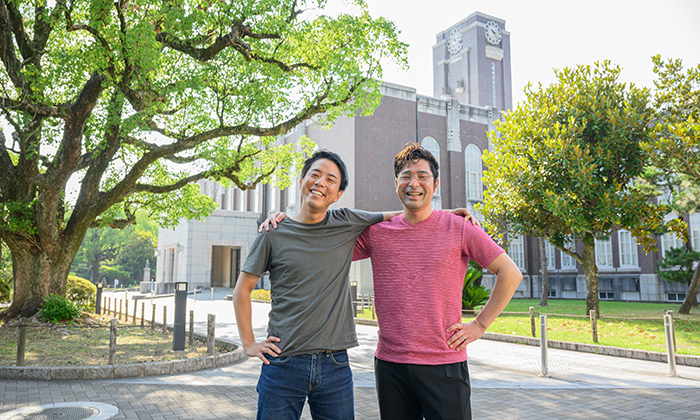
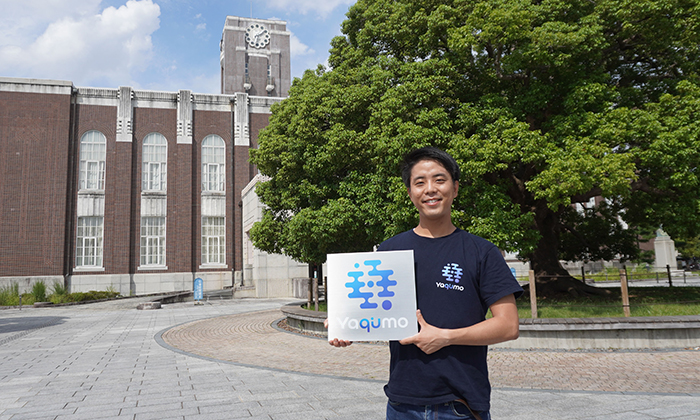
(Implemented in July 2025. Affiliations, titles, etc. as of the time of the interview)
The first EIR I had the pleasure of working with after joining Kyoto iCAP was Mr. Nakashoji. I am very grateful to have had the opportunity to have various conversations with him, both publicly and privately, and to have had the opportunity to see his path to founding the company up close. I hope that you will use your leadership to build the future of the industry and the industry as a whole!
Kyoto iCAP is always looking for challengers like Mr. Nakashoji, so please feel free to contact us!
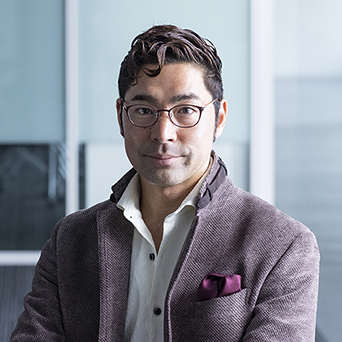
Ryuhi Kanno

Yaqumo Inc.
Please feel free to contact us if you have any questions or concerns.
Inquiry Form